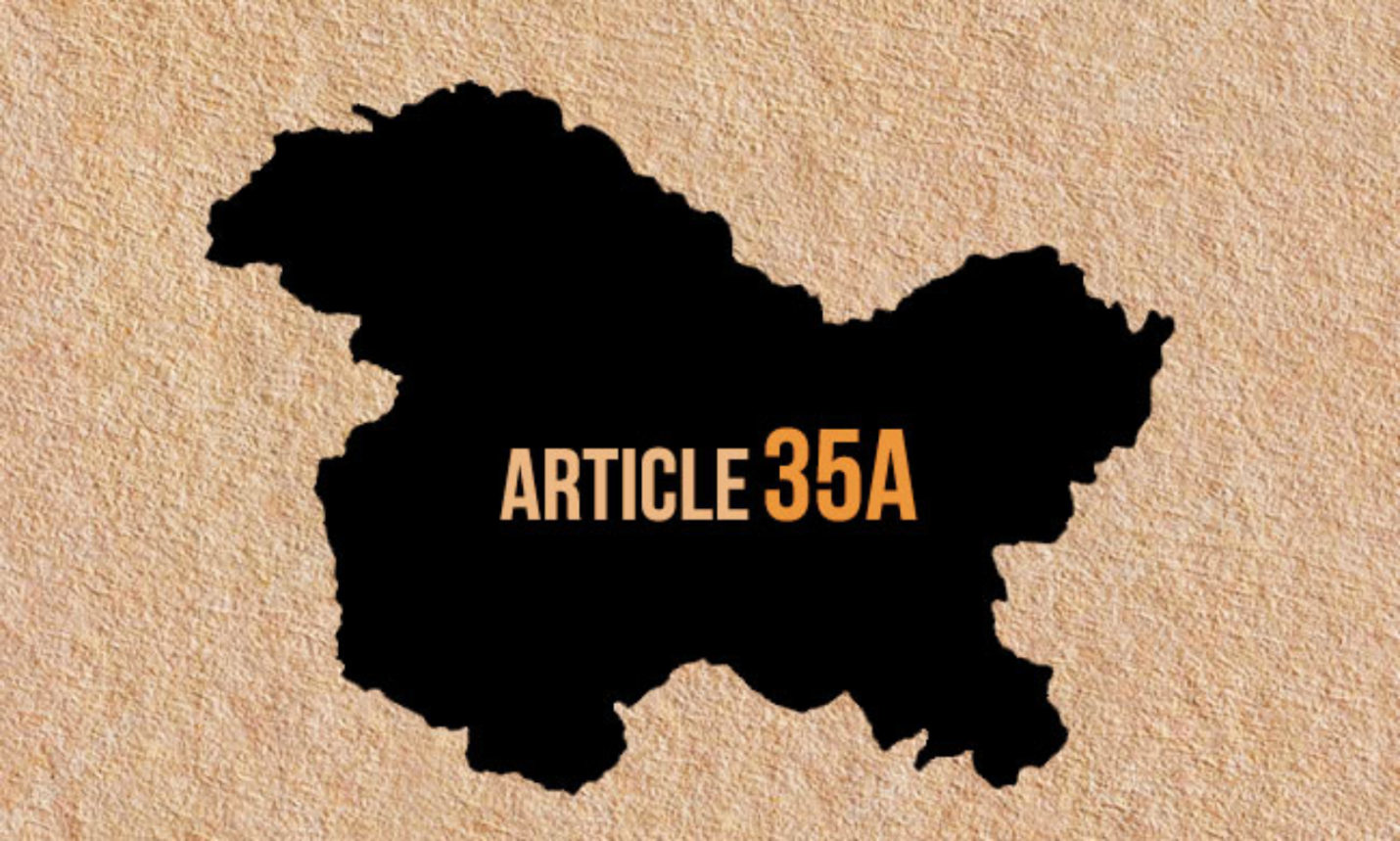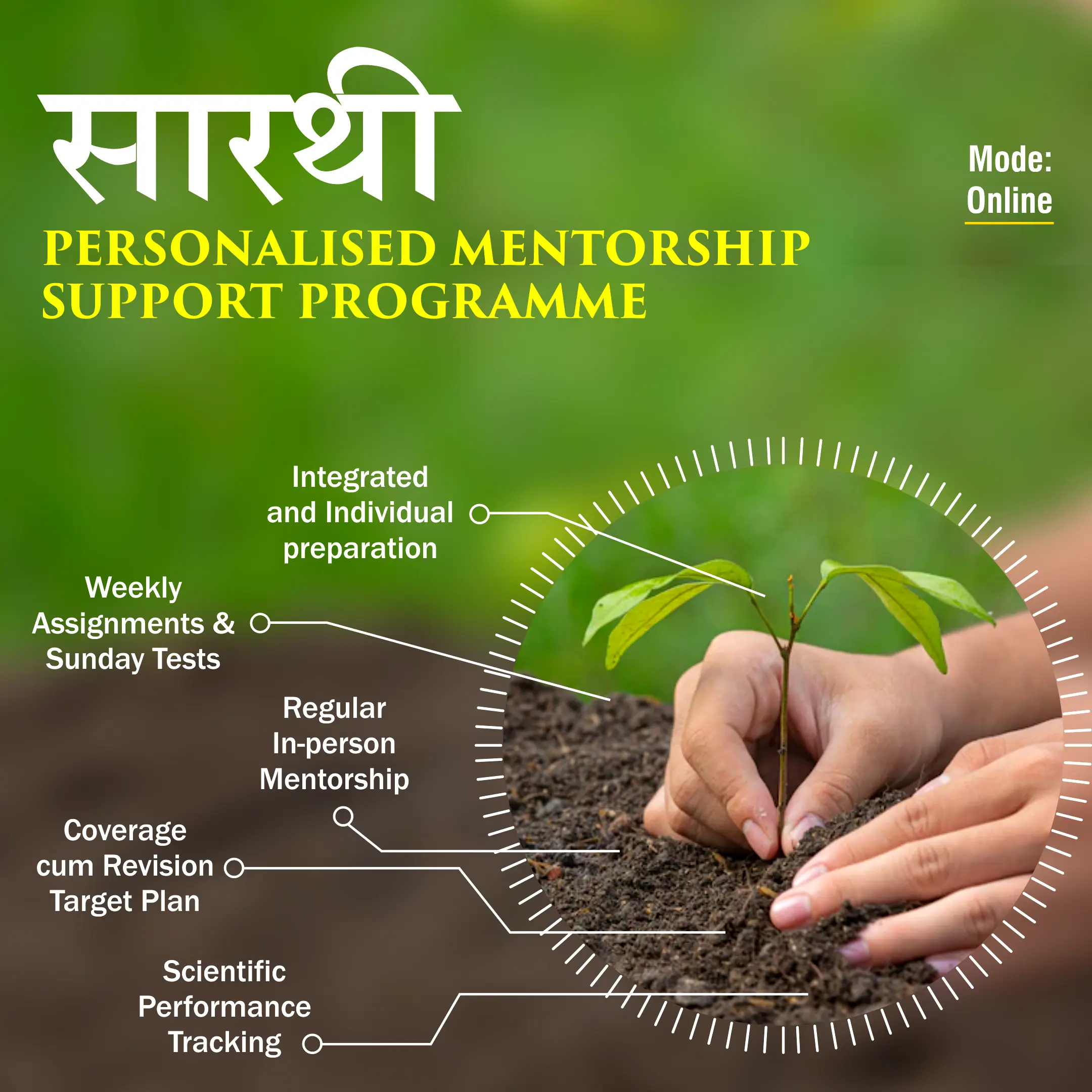
Copyright infringement not intended
Picture Courtesy: LiveLaw
Context: The Chief Justice of India highlighted that Article 35A of the Indian Constitution, which gave the Jammu and Kashmir Legislature the power to decide who were the "permanent residents" of the State and grant them special rights, was a violation of the fundamental rights of other citizens. He said that Article 35A created a "class within a class" and discriminated against people on the basis of their place of origin, gender, religion and caste.
Article 35A of the Indian Constitution
About
- Article 35A was a provision in the Indian Constitution that was inserted through a Presidential Order in 1954. It granted the Jammu and Kashmir Legislature the power to define who qualified as a "permanent resident" of the state and conferred certain special rights and privileges upon those recognized as such.
Special Privileges
- Article 35A allowed the Jammu and Kashmir Legislature to determine the criteria for being considered a "permanent resident" of the state. This definition was important because only those who were classified as permanent residents could avail themselves of the special privileges outlined in the article.
- Permanent residents of Jammu and Kashmir were entitled to various special privileges, which included:
- Equal Opportunity in State Employment: Permanent residents had the right to be treated equally and have equal opportunities in matters related to state government jobs and employment.
- Right to Acquire Property: Permanent residents were granted the right to acquire property within the state. This meant they could own land and other real estate properties in Jammu and Kashmir.
- Right to Settle: Permanent residents had the right to live and settle in Jammu and Kashmir without any restrictions. This right was not extended to non-residents.
- Distinction between Residents and Non-Residents: Article 35A created a legal distinction between permanent residents and non-residents of Jammu and Kashmir. Non-residents, who did not meet the criteria to be classified as permanent residents, were not entitled to the same special privileges.

Origin and Impact of Article 35A
- Article 35A was introduced through the "Constitution (Application to Jammu and Kashmir) Order, 1954." It was incorporated into the Indian Constitution under Article 370. Article 370 granted special autonomy to the state of Jammu and Kashmir, allowing it to have its own constitution and decision-making authority in certain matters.
- The article defined "permanent residents" as individuals who could trace their hereditary state-subject status back to 1927. This essentially meant that those who had legal and ancestral ties to the region before it acceded to India in 1947 were considered permanent residents. This definition formed the basis for determining who would be entitled to the special privileges and protections provided by Article 35A.
- Article 35A established a clear distinction between individuals who were considered permanent residents and those who were not. Only permanent residents were eligible for the special privileges and rights that the article granted, such as the right to own property and access certain government jobs. Non-residents, who did not meet the criteria, were excluded from these benefits.
- The introduction of Article 35A had a profound impact on the social, economic, and political dynamics of Jammu and Kashmir. While proponents argued that it helped preserve the distinct identity of the region and protect the interests of its residents, critics contended that it created divisions and reinforced exclusivity. The article's provisions were seen as contributing to a sense of separate identity and autonomy within the state.
Immunity from Judicial Review
- Article 35A indeed provided immunity from judicial review for the special privileges it conferred upon permanent residents of Jammu and Kashmir. This meant that the decisions made under Article 35A could not be challenged in court on the grounds of violating fundamental rights or principles of the Indian Constitution.
Abrogation of Article 35A and Article 370
- In August 2019, the Indian government took the significant step of abrogating both Article 35A and Article 370. Article 370 granted special autonomous status to the state of Jammu and Kashmir, allowing it to have its own constitution and decision-making authority in various matters except for those related to defence, foreign affairs, finance, and communications.
- The abrogation effectively revoked the special status that Jammu and Kashmir had enjoyed for several decades. As a result, the state was reorganized into two separate Union Territories: Jammu and Kashmir, and Ladakh. The decision led to changes in the political, administrative, and legal landscape of the region, sparking debates and discussions both within and outside the region.
These actions were significant and had far-reaching implications for the region, its relationship with the central government, and the political dynamics within India. The move was met with various reactions, ranging from support for greater integration of the region into the Indian Union to concerns about the potential impact on the unique identity and autonomy of Jammu and Kashmir.
Discussion on Constitutional Implications
- Adherence to Constitutional Principles: The abrogation of Article 35A and Article 370 raised questions about whether the actions were in line with constitutional principles, particularly federalism. Federalism is a foundational principle of the Indian Constitution that delineates powers and responsibilities between the central government and the state governments. Critics argued that the abrogation might undermine the federal structure by centralizing power and decision-making.
- Dissolution of Jammu and Kashmir State Legislature: The dissolution of the Jammu and Kashmir State Legislature and the subsequent imposition of President's Rule under Article 356 were seen as steps leading to the abrogation. Article 356 allows the central government to assume control of a state's administration if there is a failure of constitutional machinery. Critics questioned whether the use of Article 356 in this context was constitutionally justified or whether it was an excessive measure.
- Parliament's Role v/s Federal Structure: There was debate about whether Parliament assuming the legislative role for Jammu and Kashmir, in the absence of the State Legislature, was consistent with the federal structure of India. Critics argued that this move might erode the autonomy of the state and set a precedent for similar actions in other states.
Government's Justification
- Correction of Past Mistakes: The government's argument, as presented by Solicitor-General Tushar Mehta, was that the abrogation aimed to rectify what it saw as historical mistakes. It suggested that Article 35A and Article 370 had hindered development and growth in the region by maintaining a separate legal and constitutional framework. The government's stance was that removing these provisions would lead to economic progress and investments in Jammu and Kashmir.
- Development and Investments: The government believed that by revoking Article 35A and Article 370, the region would open up to greater opportunities for growth and investment. It emphasized that the changes were intended to benefit the people of Jammu and Kashmir by providing them with the same rights and opportunities as citizens in the rest of India.
- Retained Status as a State: The representative argued that despite the abrogation, Jammu and Kashmir continued to retain their status as a state within the Indian Union, albeit with some changes. While certain special privileges were removed, the state still had a legislature, and only a subset of police powers was transferred to the President.
The justifications offered by the government underline its perspective on the potential benefits of the abrogation in terms of economic development, equal citizenship, and administrative efficiency. However, these justifications were met with a range of reactions, including concerns about the impact on local autonomy, cultural identity, and the constitutional integrity of the region.

Conclusion
- Overall, the discussion revolves around the constitutional validity and implications of Article 35A, its revocation, and the subsequent changes in Jammu and Kashmir's status within the Indian Union. The focus of the discussion includes matters of fundamental rights, equality, federalism, and the legal processes involved in making these significant constitutional changes.
Must Read Articles:
STATUS OF JAMMU AND KASHMIR: https://www.iasgyan.in/daily-current-affairs/status-of-jammu-and-kashmir
THE KASHMIR ISSUE: https://www.iasgyan.in/daily-current-affairs/the-kashmir-issue
|
PRACTICE QUESTION
Q. Discuss the concept of federalism as enshrined in the Indian Constitution. What is its significance in the Indian political system? Identify and explain some of the challenges that have arisen in the practical implementation of federalism in India. Propose potential solutions or a way forward to address these challenges and strengthen the federal structure in India.
|
https://epaper.thehindu.com/ccidist-ws/th/th_delhi/issues/49662/OPS/G25BM8085.1.png?cropFromPage=true




